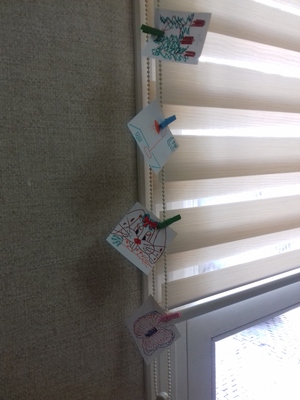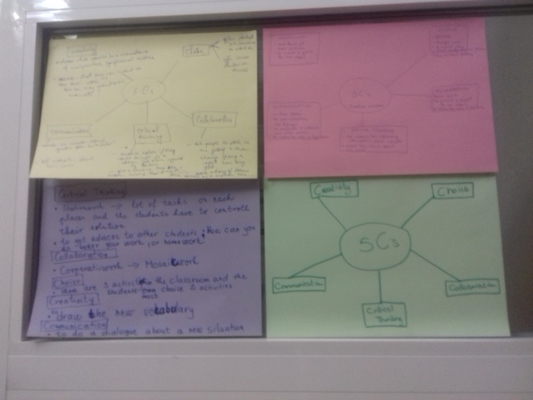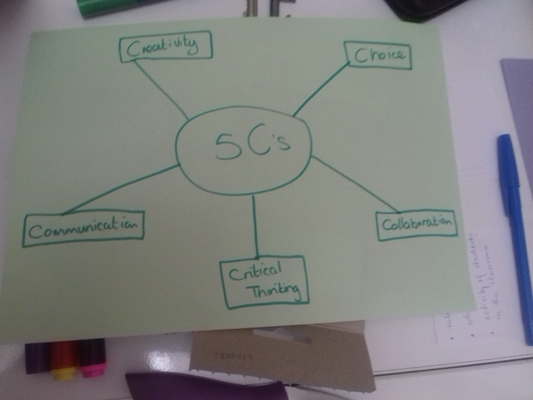2. dan - 10. ožujka 2020.
Radno jutro je započelo novim zanimljivim „ledolomcem“: crtežom uz objašnjenje predstavili smo
karakterističnu sebe.

U uvodnoj aktivnosti zadan nam je kreativan zadatak koji smo rješavali grupnom kreativnom tehnikom „brainstorming-om“. U stvorenoj poticajnoj atmosferi raspravljali smo o praktičnim načinima motiviranja učenika te definirali model „5C“ o faktorima koji povećavaju motivaciju učenika: izbor (Choice), suradnja (Colaboration), kritično mišljenje (Critical thinking), komunikacija (Communication) i kreativnost (Creativity). Potkrijepili smo ga brojnim praktičnim primjerima.

Naglašavajući važnost i kvalitetu odnosa između učitelja i učenika razmatrali smo odnos između zahtjeva prema učenicima i brige za učenike te zaključili da visoki zahtjevi i velika briga za učenike daju najbolji rezultat i kvalitetu međusobnog odnosa.
Nadalje, osvijestili smo da iznimnu važnost za motiviranje ima način vlastitog razmišljanja (mindset), odnosno jesmo li skloniji negativnom, fiksiranom (fixed), ili promjenjivom, „rastućem“ (growth) razmišljanju. Složili smo se da je preoblikovanje (reframing) vlastitog razmišljanja prema „rastućem“ zahtjevan, ali isplativ proces.
Preoblikovanjem vlastitih fiksiranih misli u „rastuće“ završili smo iznimno zadovoljni i drugi dan edukacije.
Day 2 - 10th 2020.
The second working morning began with a new interesting icebreaker: drawing ourselves we introduced our characteristic self.
In the introductory activity, we were given a creative assignment that we were solving with a group brainstorming creative technique. In a stimulating atmosphere, we discussed practical ways to motivate students and defined the "5C" model of factors that increase students' motivation: Choice, Collaboration, Critical Thinking, Communication and Creativity, and illustrated these with numerous practical examples.

Emphasizing the importance and quality of the teacher-student relationship, we considered the relationship between student demands and a care for students, and concluded that high demands and high student care provide the best outcome and quality of their mutual relationship.
Furthermore, we have come to realize that mindset is of paramount importance for motivation, that is, whether we are more prone to negative, fixed or variable “growth” thinking. We agreed that reframing our thinking to "grow" is a demanding but worthwhile process.
By reframing our fixed thoughts into "growing", we ended up being extremely pleased with the second day of education.